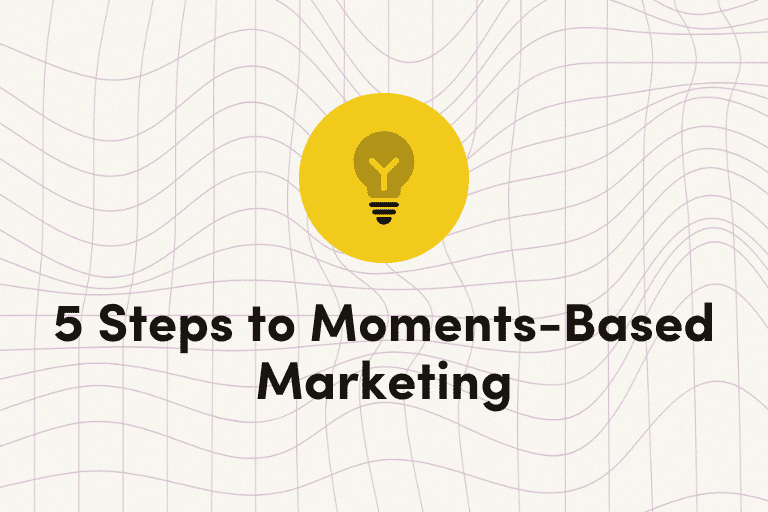As artificial intelligence continues to transform the way we do business, AI marketing is no longer a buzzword—it’s the reality for many consumer brands to reach their audiences more effectively.
But as anyone who was raised on Marvel movies knows, with great power comes great responsibility. While AI-powered campaigns promise efficiency and precision, they also bring forward a set of ethical considerations that cannot be ignored.
So how can companies strike the right balance and ensure they’re not overstepping the bounds of their customer communications?
Here are five things to consider when confronting the ethical quandaries of AI in marketing.
1. Put Privacy at the Forefront
AI advancements don’t change the fact that consumer privacy protections are required for all technology solutions. This means prohibiting the use of AI to generate any information that falls within the scope of personal information as defined under applicable data protection laws. This includes, but is not limited to, any sensitive, financial, or health information relating to any individual.
Action item: For any AI-powered solution you’re considering adding to your martech stack, request documentation of the technology vendor’s AI terms of use. This legalese should detail additional restrictions on AI use according to the vendor’s privacy policy, so you know exactly what the responsibility is of all parties involved.
To learn more about Iterable’s approach to data and privacy, check out the Activate session featuring our AI team.
2. Prioritize Transparency
Consumers deserve to know when they’re engaging with AI marketing campaigns, whether they’re interacting with a chatbot to receive style recommendations, or browsing algorithm-fueled content catered just for them.
To practice openness about their use of AI in marketing, companies are ditching the black box for the glass box with open technology that shares deeper insights into the data powering its marketing predictions to better inform marketing practitioners.
Action item: Make sure your AI solutions enable an open, transparent experience. Iterable is clear about which tools are AI-powered, as outlined in our Spring Release. From Frequency Optimization to Copy Assist, we share which features use AI. Additionally, Iterable provides transparency to marketers through Explainable AI for features like Brand Affinity and Predictive Goals by providing insights into the data driving these AI-tools.
3. Ensure Oversight With Ethical and Regulatory Guidelines
While no federal legislation exists in the U.S. regarding the use of AI in marketing, legal and regulatory scrutiny is expanding at the state and local level, as well around the world. The EU, for example, defines the levels of risk an AI technology could pose to its citizens, ranging from minimal to unacceptable.
Remaining compliant with AI regulations is only the first step toward creating a more ethical relationship between marketers and the AI tools they use. Companies should also lead the charge by drafting a set of ethical guidelines for their AI marketing practices, which spells out principles on non-manipulation and fairness. Third-party oversight can also take the form of establishing a dedicated ethics board to ensure a business keeps its AI campaigns above aboard.
Action item: Review the latest consumer data privacy protections that govern your business with your legal and security teams. The more your team is educated about AI’s role in marketing, the better your brand can foster trust with its customers.
All Iterable products are reviewed and assessed by our counsel team to ensure they comply with regulatory requirements. Additionally, all customer data is kept separated and not intermingled.
4. Audit Regularly for Potential Biases
New York City recently implemented a law that requires employers that use AI as part of their hiring process to perform an annual audit of their recruiting technology. But it’s not just HR professionals who should be cognizant of biases, all organizations share the responsibility to mitigate bias in their AI practices.
With the rise of AI popularity, we’re seeing new applications across various industries and with these new applications comes new opportunities to introduce biases. While AI can increase efficiency and help complete once-manual tasks faster, marketers need to be aware of the potential for introducing biases and should aim to mitigate them along the way.
Action item: Commit to running a regular audit of your AI campaigns to ensure you’re working with a sizable enough data set to reduce bias. Additionally, focus on use cases and interest-based variables that aren’t centered around demographic-based data.
5. Determine When AI is Most Beneficial
To make sure you maintain trust with your customers, determine when to use AI tools for your campaigns and identify the use cases where AI is needed to meet campaign objectives. AI and personalization aren’t synonymous, but they can be used in conjunction to turn mass communication into one-on-conversations at scale.
For instance, a cart abandonment reminder is an example of overt personalization because it explicitly references a user’s action. But, it may not require AI if it’s automatically triggered after a certain time frame post-abandonment. Using send time optimization for a newsletter, on the other hand, would be putting both personalization and AI into action since the time the newsletter is sent is based on when a user is most likely to engage.
Action item: After you’ve determined your objectives for each AI campaign, you can decide which methods of personalization are best suited. For a deeper dive on personalization tactics, you can download our playbook with four steps to make individualization seem like magic—not manipulation.
Striking the Right Balance With AI Marketing
It is more than possible to harness the power of AI in marketing without compromising on your team’s ethics and integrity. The key is to protect consumer privacy, prioritize transparency, ensure oversight, audit against bias, and be mindful of your personalization strategies. When in doubt, always build AI campaigns that put your customers first.
After all, growing your business should never come at the cost of your brand’s reputation.
If you’re looking for a trusted technology partner that’s dedicated to ethical, explainable AI, schedule a custom demo of Iterable’s AI suite today.
































